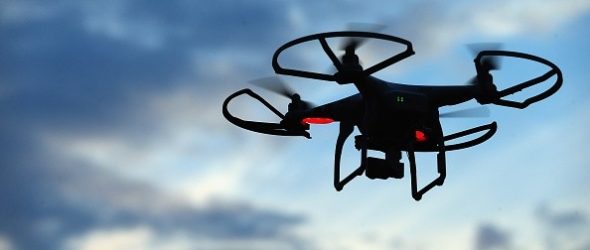
Bruce Bennett / Staff / Getty Images
When cannabis was legalized in Washington in 2012, jokes soon followed that it was just a matter of time until Amazon “starts a service to deliver cannabis to your front door via drone.” That hasn’t happened—yet—but recent news indicates it may not be that far off.
Last month, Seattle based GRN Holdings announced plans to launch a new service in February or March in the greater Seattle area. They’ll start with a fleet of six drones to deliver cannabis products from wholesalers, growers, and processors to dispensaries, with each drone equipped with an iPad and software to allow tracking and the required “CannaTrac payment system for closed loop payments on delivery.”
The drones can handle payloads of up to nearly 90 pounds (40 kilograms) and have a range of more than six miles (10 kilometers). The delivery flights will be flown by licensed drone pilots (yes, please), and monitored from a “command center in Seattle.”
One benefit includes sizable expected savings, with projections that this delivery method will be as low as one-tenth the cost of a van or Sprinter-based delivery. More pluses include carbon-footprint reduction (taking delivery vehicles off the roads) and more jobs (the company announced it plans to hire up to 20 people to charge, calibrate flight systems, and maintain the fleet).
Also, it’s a fucking drone flying across town hauling 85 pounds of top-shelf flowers, hash, and edibles. That is some “Bud Bladerunner” stuff right there.
So while acknowledging the aforementioned benefits, there are still some obvious concerns. I don’t want to be Darryl Downer regarding the drones, but damn—it’s a fucking drone flying across Seattle hauling 85 pounds of top shelf flowers, hash, and edibles!
I’m not concerned about Pacific Northwest speed-freak rednecks with 12-gauge shotguns taking down these drones of dank. It’s not as though the drones are carrying an 80-pound ziplock bag, so there won’t be any way to determine its payload, barring neon-green pot leaves painted on the drone. I would think the entire flight, delivery, and transfer transaction is captured on an attached camera, so the theft factor seems on par or lower than the robbery of traditional delivery systems.
I’m no Ludditte, and while I, for one, welcome our doobie-wielding drone overlords, it just takes one crash where the payload is accessed by someone underage, or that crash seriously injuring or killing a person, that this option gets some blowback. With an expected increase in drone delivery services from food delivery and other businesses, the crash factor is going to rise overall. But the loss of 80 pounds of cannabis products that may be found by passing teenagers who suddenly believe there is a God (and She is good), may move regulatory officials to rethink their position on this option.
No word was given as how one applies for a job as a pot pilot.


